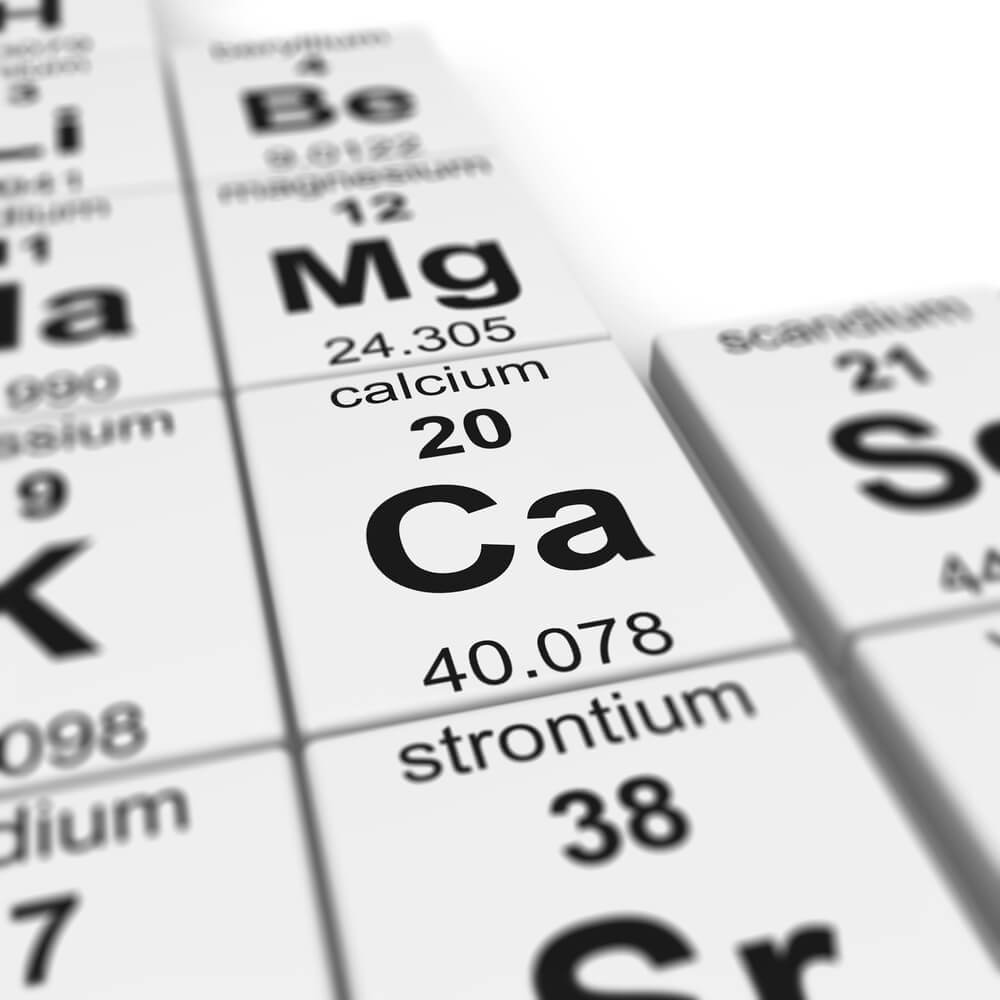New moms have one important thing in common: They all want to do what is best for their baby.
Most of the time, this means exclusively breastfeeding their baby for at least the first six months. However, this is not always a realistic option for some moms. This means that they must find an alternative way to feed their baby.
Moms who are unable to breastfeed may turn to cow's milk, formula or a combination of the two to provide their babies with the nutrition that they require. Unfortunately, these feeding options can have some unforeseen consequences, such as the development of a calcium deficiency.
Known as hypocalcemia, this condition can become serious and even life-threatening if it is not promptly diagnosed and treated.
What are the symptoms of a calcium deficiency, and how is the condition treated? Read on to learn more.
Calcium Is Critical for All Babies
You probably already know that calcium is required for keeping bones strong and healthy. This mineral is essential to people at all stages of development and life, but it is especially critical for babies.
This is because your baby is growing rapidly, making it doubly important that she has enough calcium to keep her bones strong. It is worth knowing that the success of your baby's bone development will affect her for the rest of her life. In fact, a serious calcium deficiency during infancy or childhood may stunt an individual's overall growth.
Ingesting sufficient calcium also is crucial for the proper transmission of nerve impulses, heart function and muscle function.
Clearly, it is vital to ensure that your baby is getting enough calcium.
What Causes Calcium Deficiency in Infants?

Many cases of this condition are caused by a diet that is heavy in cow's milk. This happens for at least two reasons. The first is the lack of ability to absorb the calcium in the cow's milk, and the second is that this type of milk causes acidification throughout the body. To counteract this acidification, the body naturally draws calcium out of the bones, leading to a deficiency.
However, babies who are being breastfed or who are receiving a calcium-rich formula also may be diagnosed with a calcium deficiency. This may occur for reasons such as:
- Impaired oxygen supply during delivery
- Taking medication for bacterial infections
- Not enough exposure to sunlight, which causes a Vitamin D deficiency, inhibiting the baby's ability to absorb calcium
- Premature birth
- The mother experienced gestational diabetes
Other, less common, causes of calcium deficiency may include having a condition called congenital hyperthyroidism and a genetic defect known as DiGeorge Syndrome.
Symptoms of Calcium Deficiency in Babies
Knowing that calcium is so critical to your child's growth and development, you likely understand why it is so crucial that you be able to recognize the warning signs of this condition.
Here are some of the most common signs that your baby may have a calcium deficiency:
- A path of sweat forms on the baby's pillow or hair while sleeping
- Teeth are slow to come in, and may appear loose or uneven when they do grow in
- Protrusion of the belly
- Impaired concentration
- A lack of interest in his surroundings
- Erratic or unpredictable emotional behavior
Other symptoms may include a loss of appetite, difficulty sleeping and a greater susceptibility to a variety of illnesses and diseases because of a weakened immune system.
Most of the symptoms listed above are among the less alarming signs of a calcium deficiency. If the baby's condition becomes severe, then the symptoms can become frightening.
These may include seizures and convulsions caused by an inadequate supply of oxygen to the brain and unusual facial movements that may include fluttering eyes and twitching of the lips and tongue.
Some babies also may exhibit deformities in the joints or poor growth while others suffer from low blood pressure. Spasms of the hands or feet, which may look like a seizure, are an extraordinarily dangerous symptom that may indicate that if the calcium deficiency is not treated, then the baby may die.
How Is Infant Calcium Deficiency Diagnosed?

If you believe that your baby is showing any of the above symptoms, then it is critical that you schedule an appointment with his pediatrician as quickly as possible. The doctor will perform a physical examination, which may provide some clues as to the presence of a calcium deficiency.
However, it is a blood test that will provide the ultimate diagnosis. The blood test will tell the doctor the baby's ionized calcium level or total calcium level. It is likely that the doctor also may look at the baby's glucose numbers to ensure that hypoglycemia is not an additional problem.
If the doctor determines that the baby has a calcium deficiency, then the treatment depends upon how severe the deficiency is. Particularly serious cases initially may be treated with an IV of calcium gluconate. This treatment may be followed up with a few doses of oral calcium supplements.
Further Treatments for Calcium Deficiency in Infants
For babies whose calcium deficiency is not so severe, it may be possible to correct the situation with more exposure to sunlight. The extra Vitamin D can go a long way toward helping with calcium absorption.
It also may be wise for the mom to make another try at breastfeeding if this is at all feasible. Breast milk is loaded with calcium, which is just one more reason why it deserves to be called nature's perfect food.
The Prognosis Is Good
Calcium deficiency is fairly common in infants. If your baby is diagnosed as calcium deficient, do not take it too much to heart. This condition can occur for numerous reasons, and a diagnosis certainly does not mean that you are a bad mom.
Most cases of infant calcium deficiency quickly respond to treatment. Moreover, most cases can be resolved without any lasting or permanent harm to the baby. Chances are good that your baby will never even know that she was once calcium deficient.
Are You Calcium Deficient?
Calcium isn't just a critical mineral for newborns. It is vital at all stages of life. In fact, it is particularly important for women because of their susceptibility to osteoporosis and other forms of bone loss.
According to the National Institutes of Health, women between 19 and 50 years of age are recommended to get a minimum of 1,000 mg of calcium every day. Women 51 and older are advised to take 1,200 mg on a daily basis.
These increased amounts help to protect bone density through life changes like menopause, which is responsible for considerable thinning of the bones.
Get Your Baby Started Right
At Euphoric Herbals, we understand that breastfeeding is not always as easy and natural as you would like it to be. If you are struggling with stimulating and maintaining your breast milk supply, then you have come to the right place. We specialize in formulating healthy, all-natural products that are designed to support you on your breastfeeding journey.
Browse our wide and varied selections of organic teas and supplements. Many of them have helped moms just like you keep breastfeeding when the going got tough.
As moms, we all want to do what is best for our babies. In most cases, this means breastfeeding for at least the first six months. Let us help you give the best possible care to your children.
Disclaimer: This post is for informational purposes only. It does not constitute medical advice and should not be substituted for medical advice. Please consult your health care provider, herbalist, midwife, or naturopathic physician before taking herbs, supplements, etc. Here's the link to our full disclaimer.














































































































































































